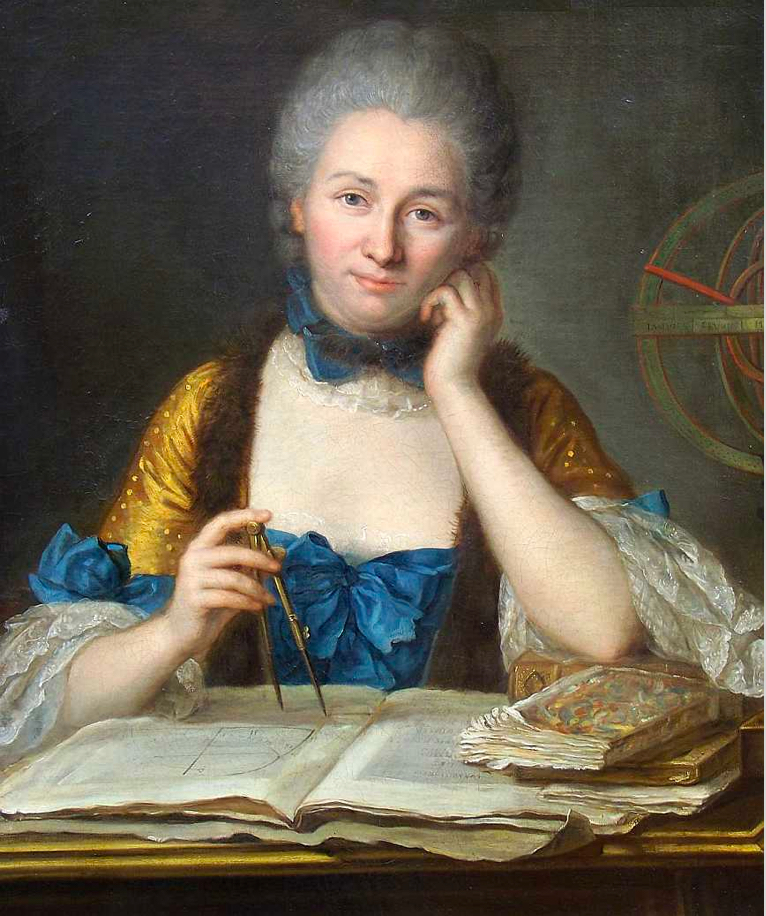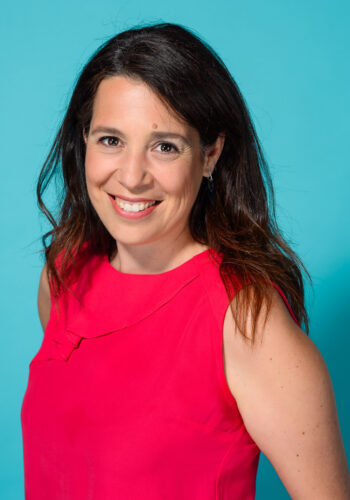Pourquoi la tech ?
La tech’ ne s’est pas imposée de façon évidente. Plutôt créative et prompte à tisser des relations, à agréger des idées, j’ai eu la chance d’évoluer dans un milieu industriel dont j’ai très vite senti et apprécié le pragmatisme, l’expertise et la capacité d’aller vite et loin.
Face au plus grand challenge que l’humanité ait à relever, le dérèglement climatique, j’ai rapidement été persuadée que l’innovation technologique raisonnée avait une place centrale pour permettre à nos villes de s’adapter et devenir plus résilientes. Je suis désormais convaincue qu’une partie des réponses viendra de la transformation du monde industriel. C’est ma contribution.
Votre parcours ?
Malgré un penchant pour les arts et la littérature, j’ai suivi un parcours académique scientifique que j’ai voulu aussi humaniste que les voies scolaires le permettaient. Après une prépa bio, j’ai été diplômée de l’École Nationale Supérieure de Géologie (ENSG) en tant qu’ingénieure géologue. Comprendre les forces telluriques, leurs impacts et pouvoir décrypter des paysages plus grands que nos individualités, voilà qui n’est pas donné à tout le monde ! Après l’obtention de mon diplôme, j’ai suivi un Master of Science spécialisé à Heriot Watt University, Edimbourg.
J’ai ensuite intégré l’entreprise Schlumberger en 2005, réputée pour sa diversité de cultures et son expertise technologique, en tant qu’ingénieure géologue. J’ai très vite évolué dans des postes de gestion d’équipe projet multidisciplinaire, puis de développement software jusqu’à devenir chef de département et enfin partie prenante de l’équipe de direction de la plus grande branche de R&D du Groupe en 2018. En parallèle de ce parcours, je me suis engagée à titre personnel dans de nombreuses associations citoyennes autour de l’éducation, de la promotion des filles et des femmes dans les parcours scientifiques et, de plus en plus, dans des initiatives liées au climat.
La conjonction de ces trajectoires professionnelle et personnelle m’a progressivement poussée à chercher une façon d’utiliser la puissance du groupe Schlumberger pour avoir un impact dans le monde du bas carbone. En 2017, avec deux de mes collègues, nous avons commencé à développer une initiative autour de la géothermie, en plus de nos emplois, en « soirs-et-week-end ». Après une phase de maturation du projet et d’un business plan, je suis partie convaincre le CEO de Schlumberger à Houston de nous laisser quartier libre pour développer cette idée. Chose que nous avons faite en 2019 avec la création de Celsius Energy, qui permet de connecter les bâtiments à l’énergie de la Terre pour diviser par 10 les émissions carbone de leur chauffage et de leur climatisation. Notre entreprise compte aujourd’hui 80 employés en France et aux États-Unis.
Votre première expérience professionnelle dans la tech ?
J’ai été en charge de caractériser les images issues des mesures de résistivité du sous-sol. Depuis mon bureau, je pouvais interpréter des paysages créés il y a plusieurs dizaines de millions d’années et qui sont aujourd’hui enfouis à quelques milliers de mètres sous nos pieds.
Que faites-vous aujourd’hui et pourquoi ?
25% des émissions de gaz à effet de serre proviennent du chauffage de nos bâtiments. La bonne nouvelle ? Nos bâtiments reposent sur une batterie immense de calories !
Je suis présidente de Celsius Energy, qui porte une solution de géoénergie simplifiée pour massifier l’utilisation de cette batterie d’énergie au potentiel immense. Ma mission est de promouvoir cette énergie et de la rendre accessible à tout type de bâtiment, neuf ou en rénovation par une technologie robuste et simple.
Car les rapports du GIEC ne laissent aucun doute : tout levier permettant de limiter le réchauffement planétaire doit être mis en œuvre et chaque dixième de degré compte !
Celsius Energy fait partie de la solution en adressant deux enjeux majeurs de notre temps : la décarbonation de nos bâtiments et notre souveraineté énergétique. J’ai la chance inouïe de me lever chaque matin avec le sentiment de pouvoir agir concrètement pour le bien de notre planète.
Vos atouts pour ce poste ?
Un enthousiasme, une vision, un pragmatisme et… mes deux cofondateurs avec qui l’aventure est possible et qui complètent mes qualités par leur expertise et leur excellence.
Vos défis passés, vos ratés, vos grands moments de solitude ?
Deux ans, c’est long ! Entre 2017 et 2019, les hauts et les bas se sont succédés avant que Celsius Energy ne fleurisse vraiment. Et parmi les bas, il y a eu ce moment où j’ai pensé que le Groupe ne nous suivrait pas et où j’ai dû me remettre en question pour trouver une autre voie. J’ai même candidaté auprès de l’UNESCO pour défendre le patrimoine mondial de la biodiversité. Ils ne m’ont pas prise et c’est tant mieux : j’aurai plus d’impact avec la géoénergie !
Vos meilleurs moments, les succès dont vous êtes fière ?
Le jour où nous avons eu carte blanche pour lancer Celsius Energy et le rayonnement que nous avons aujourd’hui, la capacité d’influencer ce grand groupe international vers un nouveau chemin. Et les premiers clients qui nous font confiance et dont nous soutenons l’engagement sociétal et environnemental.
Des personnes qui vous ont aidée/marquée ou au contraire rendu la vie difficile ?
D’un naturel positif, j’ai surtout envie d’évoquer celles et ceux qui m’aident et me soutiennent dans cette aventure tant humaine que professionnelle :
Olivier Peyret, président de Schlumberger France, notre premier sponsor et notre coach permanent, qui nous pousse et nous challenge au quotidien et nous permet de prendre de la hauteur et de nous dépasser.
Claudie Haigneré : par son humilité, son élégance de pensée et de soutien, une belle inspiration et une bienveillance que je conserve pour pouvoir la distribuer à mon tour. La bienveillance ne se partage pas, elle se multiplie.
Bertrand Piccard : notre meilleur ambassadeur auprès de publics variés, quel enthousiasme !
Olivier, Laura, Alexandre : mon mari et mes enfants, qui me soutiennent et m’enrichissent de leurs discussions et de leurs parcours.
Vos envies et défis à venir ?
Un défi : limiter l’impact du dérèglement climatique
Une envie : éduquer, embarquer le monde dans une vision pragmatique, humaniste et réaliste..
Et que faites-vous en dehors de votre travail ?
J’essaie d’élever mes enfants en connexion avec ce qui les entoure et en cultivant de mille façons leur goût prononcé pour le vivant et la nature !
J’essaie également de garder un moment pour le chant que j’affectionne particulièrement et je continue de m’impliquer dans plusieurs associations locales.
Vos héroïnes (héros) de fiction, ou dans l’histoire ?
Toutes ces femmes qui ont su se frayer un chemin dans un monde qui ne souhaitait pas les accueillir. Récemment, j’ai été touchée par ces jeunes femmes qui prennent parole sur les sujets, qui font tribune et cherchent à rassembler. La première d’entre elles fut certainement Olympe de Gouges qui montra la voie.
Votre devise favorite ?
Un démonstrateur bas carbone, c’est comme une femme au COMEX, seul, ça fait une jolie plaquette mais l’impact n’y est pas ! Multiplions les !
Un livre à emporter sur une île déserte ?
Sur une île déserte, emportons la trace de ceux qui auraient pu la découvrir, ces galions espagnols emportés au gré des tempêtes et des fantasmes de gloire et d’or.
Et pourquoi par guidés par une femme, Dona Isabel Barreto dans Je te vois reine des quatre parties du monde, d’Alexandra Lapierre.
Un message ou un conseil aux jeunes femmes ?
Ayez confiance et cassez le moule ! La vie est trop belle pour s’en laisser dicter les contours. Entourez-vous des bonnes personnes, celles qui vous inspirent et vous font grandir.


